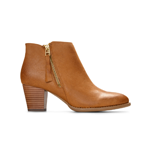
Different Ways You Can Help with Overpronation
By Dr. Jackie Sutera
Pronation describes a flat foot type called pes planus. Genetics determines this, in almost all cases, except for instances of injury, wear and tear or some disease processes.
Abnormal gait is any walking pattern that inhibits walking in the “usual way.” One of the most common reasons for abnormal gait is flat feet, overpronation, or pes planus foot types. When feet are flat, the arch can touch the ground, causing poor biomechanics and lower limb alignment. This can also cause a misalignment in the knees, hips, and back and an abnormal gait pattern.
Rare and severe breakdown of the foot and “collapse of the arch” can be caused by a neuroarthropathy disease process, like diabetic Charcot foot. More commonly associated problems for people with flat feet include: hammertoes, calluses, corns, pain, shin splints, bunions, arthritis, bone spurs, instability, etc. can all form as a result of flat feet. Treatments include arch support, which can help set a more neutral foot and foundation for the entire skeleton. There are custom-molded orthotics made at your podiatrist’s office and over-the-counter versions, like Vionic‘s insoles. Vionic has several styles, including Active, Relief, and Slim fit depending on your specific needs. Shoe selection is also essential. Flatter feet need more stability in their shoes and often benefit from a more rigid shoe to hold up the arch. In more severe cases of flat arch feet, surgery can be an option to bring up the arch or correct the associated problems. People with foot pain or worsening symptoms due to pronation should also seek help from their podiatrist, who can evaluate and treat the pronation accordingly.
About the Author:
Dr. Jacqueline Sutera is a surgically trained doctor of podiatric medicine specializing in the prevention and treatment of foot pathology. She graduated from Fordham University with a Bachelor of Science degree in Biology and Philosophy. She later attended the New York College of Podiatric Medicine where she earned the degree of Doctor of Podiatric Medicine (DPM). Dr. Sutera received her postgraduate residency training at the busy level-one trauma center at Jamaica Hospital in Queens, NY and Brookdale Hospital in Brooklyn, NY. During her time there, she served as chief surgical resident and received and completed training in all aspects of podiatric medicine and surgery. Dr. Sutera is Board Certified in Foot Surgery and is a Fellow of the American College of Foot & Ankle Surgeons. She is also a proud member and spokesperson for the American Podiatric Medical Association and the New York State Podiatric Medical Society. As one of NYC’s premier podiatric physicians, she is a caring, conscientious and extremely personable doctor who prides herself on being holistic in her approach to foot care. Where other doctors treat feet only locally, she has a unique gift of being able to link some foot problems to other underlying conditions taking place in the body.









